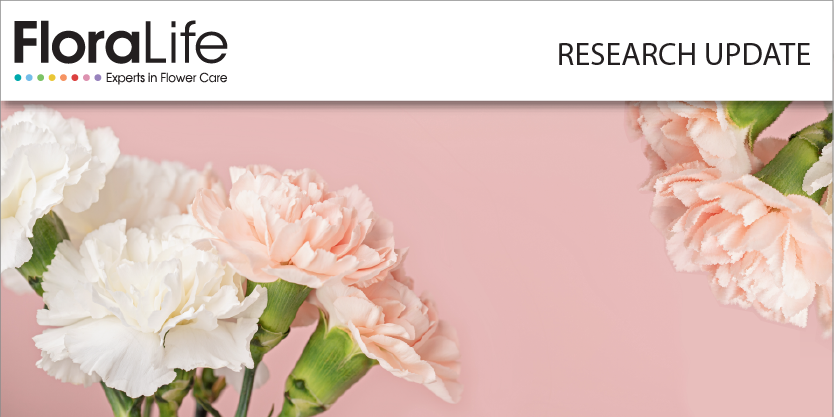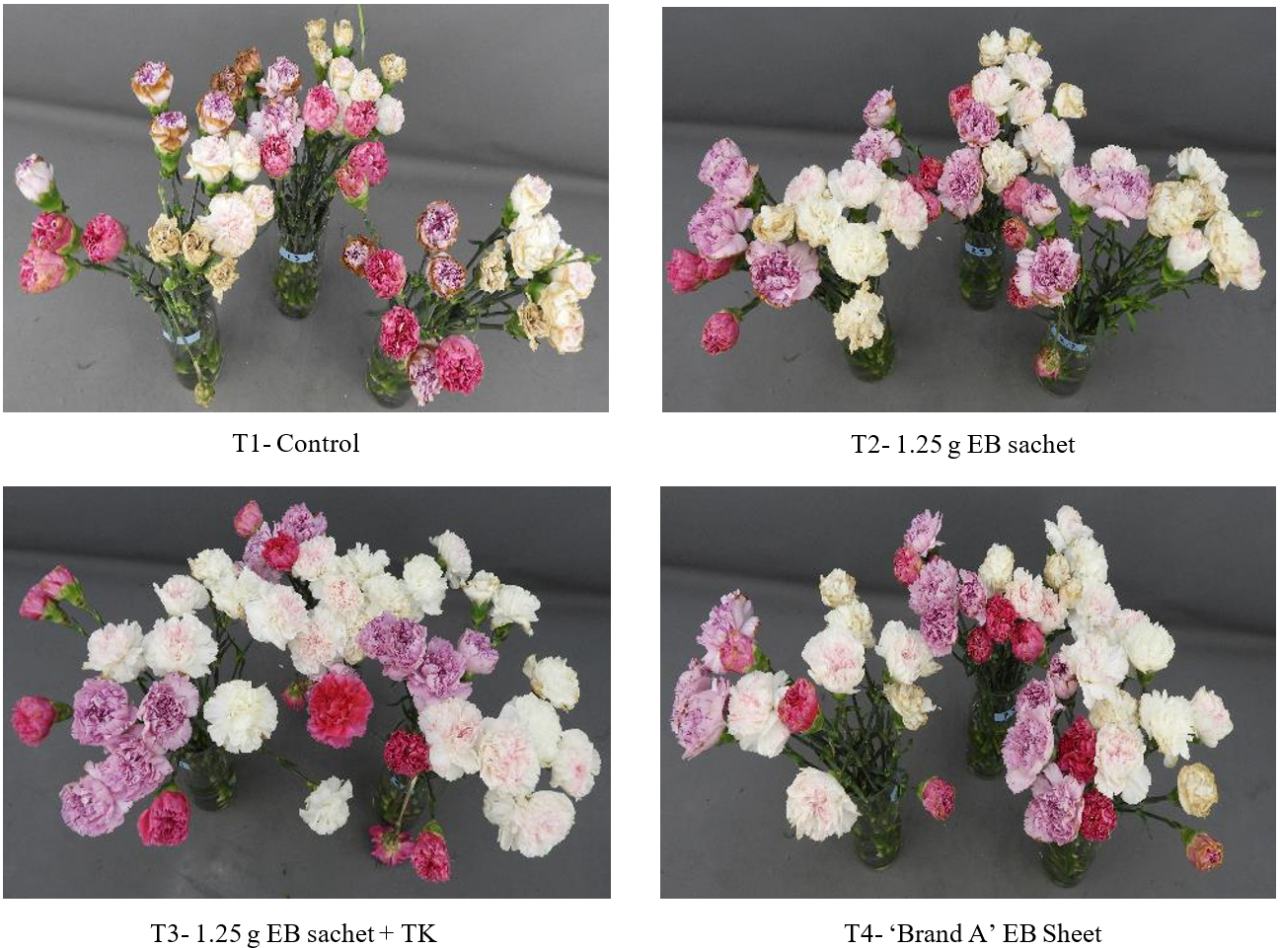Effects of Continuous Application of 1-MCP on Carnations to Prevent Ethylene Damage.
Research Update June 2024, powered by FloraLife
Mominul Hoque – Postharvest Scientist – FloraLife

Introduction:
The damage caused by ethylene is a major factor affecting the quality of cut flowers during the postharvest phase. Carnations are highly sensitive to ethylene. The sensitivity to ethylene varies depending on the cultivar and is a critical factor in determining the longevity of Carnations. Ethylene signaling is dependent on the perception of the ethylene molecule by receptors located in plant cells. The technology of 1-methylcyclopropene (1-MCP) is most commonly used during cut flower transport to prevent ethylene injury by binding with ethylene receptors and blocking the ethylene action. However, 1-MCP does not stay on the receptor permanently, and new ethylene receptors are constantly generated in plant cells during later stages of transportation and storage. Therefore, plants treated with 1-MCP at the farm level can regain ethylene sensitivity post-treatment. In this research, we investigated the effect of a second 1-MCP treatment to prevent successive ethylene damage.
Research:
Four varieties of Carnations were sourced from Colombia and bunches were divided into flower boxes for the following treatments:
T1 – No anti-ethylene treatment (control).
T2 – EthylBloc™ 1.25 g sachet at farm level (EB 1.25g) as a single 1-MCP application.
T3 – EthylBloc™ 1.25 g sachet at farm level followed by EthylBloc™ Truck Kit treatment (EB 1.25g + TK) as a second 1-MCP application.
T4 – ‘Brand A’ anti-ethylene sheet as a single 1-MCP application.
The number of sachets and sheets required was determined based on the size of the box. Sachets and sheets were placed into boxes and were immediately closed. The boxes were kept at room temperature for 24 hours. They were then stored in a cooler at 3°C (37°F) for 5 days. After that, flowers were taken out, processed and stems from each treatment were kept into separate buckets containing FloraLife® Express Ultra 200 flower food at room temperature. Treatment 3 was placed in an enclosed chamber and treated with EthylBloc™ Truck Kit for 24 hours with the appropriate dose for the volume. The buckets were then stored at 3°C (37°F) for 4 days followed by exposure to 1 ppm ethylene gas for 24 hours at room temperature. Later, the flowers were kept in a cooler for 24 hours before finally being put into vases with FloraLife® Express 300 at room temperature for the vase life evaluation.
Results: Figure 1. Vase life (days) and % botrytis for Carnations.
Conclusions:
The vase life was different depending on the variety. But in general, 1-MCP treatments increased the vase life compared to control. EthylBloc™ sachets applied at the farm followed by an EthylBloc™ Truck Kit treatment gave the best vase life in all four varieties of Carnations. A significant reduction of botrytis incidence was observed in 1-MCP treated flowers. Data indicates that a second EthylBloc™ treatment provides better protection against ethylene damage. This could be due to the binding with new receptor sites synthesized during the storage and transport.
Photos: Vase Life Day 7

EthylBloc™ is a registered trademark of AgroFresh Inc.
*Product availability depends upon geographical region. Check here for more information.
